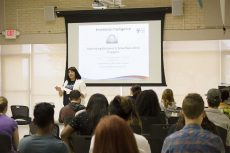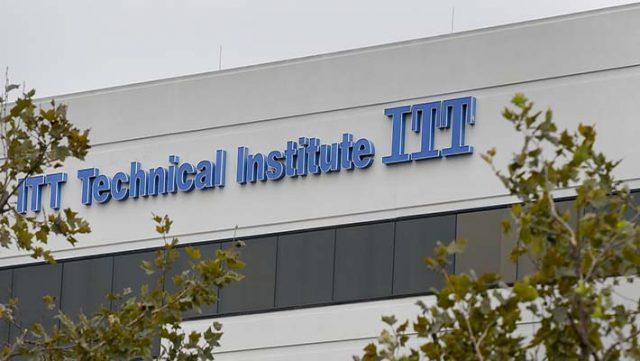By Katelyn Needham/ campus editor

Karen Rios/The Collegian
Emotional stability goes hand-in-hand with academic success, said a SE counselor Sept. 8.
Carisa Bustillos-Givens presented Emotional Intelligence on NW Campus discussing emotional management and ways it will help students improve in their classes and succeed in other areas of their lives.
“We are all really on the same playing field emotionally,” she said. “A lot of students who start on the developmental level feel like they are behind. But a student coming in with great grades who doesn’t have the emotional skills is just as likely to struggle as the one who started in developmental classes.”
Bustillos-Givens had attendees take an emotional intelligence survey to find out how in tune they were with their emotions. The survey aimed to help them understand their emotional strengths and weaknesses. She has worked with students on academic suspension for the past five years.
“The majority of their academic problems really aren’t about the courses,” she said. “It primarily has to do with their response to events in life, stress and their resilience with the challenges they face. Emotional intelligence and academic skills are both important to a student’s success.”
She outlined strategies for dealing with personal and social emotional responses in an effective way by focusing on the ability of the student to tone down the strength of the feeling to a more manageable one.
Turning down the intensity of the emotions will increase stress tolerance, Bustillos-Givens said. Taking an emotion like resentment or anger and making it a more manageable emotion like frustration will help students cope better, she said.
Conflict management, assertive communication, emotional awareness and expression of their feelings are all important factors in emotional intelligence.
Managing emotions helps students balance their relationships and other responsibilities, Bustillos-Givens said.
“I really hope students start to think about what’s going on with them,” she said. “At least if they become more aware, they might do more research on this topic or seek guidance. A lot of students and almost everybody would benefit from counseling every once in a while. It’s like a medical checkup.”





























